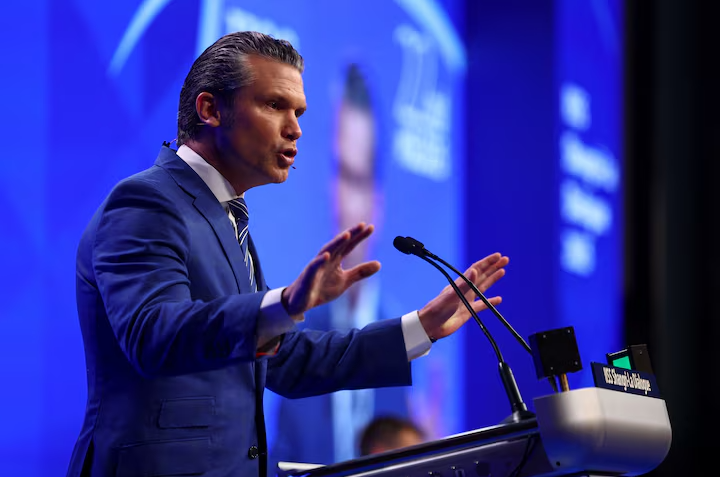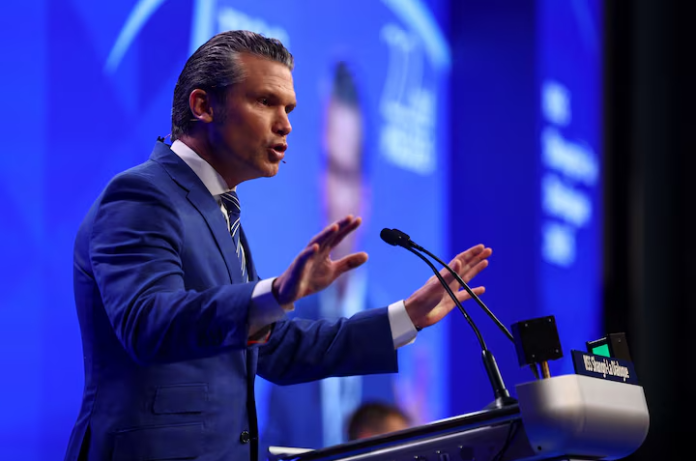Tensions between China and the United States have escalated once again, this time over controversial comments made by U.S. Defense Secretary Pete Hegseth at a high-profile defense summit in Singapore.
Speaking at the Shangri-La Dialogue, Asia’s premier defense forum, Hegseth strongly criticized China’s military expansion and urged America’s allies in the Indo-Pacific—particularly Australia—to increase their defense budgets in response to what he called a “real and potentially imminent” threat from Beijing.
China wasted no time in pushing back.
On Sunday, China’s foreign ministry issued a stern statement, accusing Hegseth of making “vilifying” and “deplorable” remarks that deliberately ignored the region’s desire for peace and stability. The ministry condemned the U.S. for what it described as pushing a “Cold War mentality” and fueling tensions in the Asia-Pacific through provocations and military deployments.
“China strongly opposes the defamatory labeling of it as a threat,” the statement said, asserting that the U.S. has deployed offensive weapons in the South China Sea, turning the region into a potential flashpoint. The ministry also criticized Hegseth for promoting bloc confrontations instead of constructive diplomacy.
The Chinese defense ministry echoed this sentiment, accusing the U.S. of habitually using international forums like the Shangri-La Dialogue to stir division and advance selfish interests. “China’s armed forces will cooperate with other regional nations to resist hegemonism that undermines peace in the Asia-Pacific,” said military spokesperson Zhang Xiaogang.
Hegseth’s comments were part of a broader appeal for defense cooperation among U.S. allies. He specifically called on Australia to increase military spending. In response, Australian Prime Minister Anthony Albanese affirmed that his government had already committed an additional $6 billion to defense efforts.
Meanwhile, tensions continue to simmer in the South China Sea. The U.S. has deployed Typhon missile launchers in the Philippines capable of striking targets in both China and Russia. This move comes amid repeated maritime confrontations between China and the Philippines over disputed waters.

Chinese military officials at the summit reiterated that “external intervention” was the primary destabilizing factor in the South China Sea. Colonel Zhang Chi of China’s PLA Defense University claimed that U.S.-led freedom of navigation operations were infringing on China’s territorial sovereignty.
The controversy also extended to Taiwan, a long-standing flashpoint in U.S.-China relations. Hegseth warned that any attempt by China to forcibly reunify with Taiwan would have “devastating consequences,” a remark that drew another fierce rebuke from Beijing. China views Taiwan as a breakaway province and has not ruled out the use of force to bring it under its control. However, Taiwan’s government insists its future lies in the hands of its people.
As military posturing continues on both sides, the region remains on edge. What was meant to be a platform for dialogue has instead become yet another stage for a growing power struggle between two of the world’s most influential nations.



